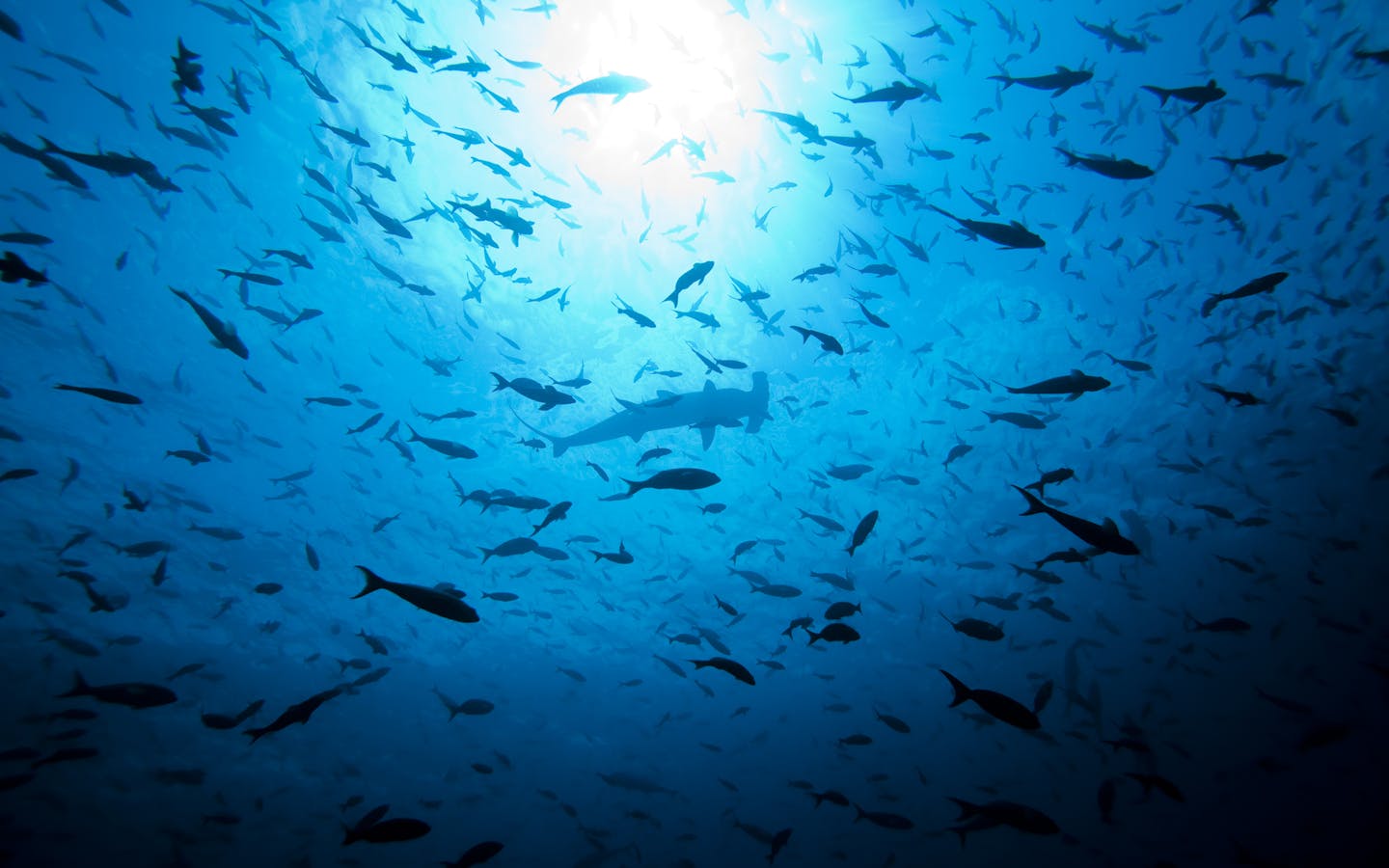Countries in the Eastern Tropical Pacific Seascape — Costa Rica, Panama, Colombia and Ecuador — have made significant progress designating and managing national networks of marine protected areas (MPAs) to conserve the bountiful waters within their respective territories.
Despite this protection, national and foreign fishing fleets place enormous pressure on marine resources. Most coastal fisheries have been overfished, and high-value species such as snapper, grouper and sharks that are integral to the seascape’s economy and environment are severely depleted due to illegal, unreported and unregulated (IUU) fishing practices. Many species are caught unintentionally as "bycatch," which often goes unrecorded even though reporting is mandated by regional fisheries management organizations and national observer programs in the seascape.
A study sponsored by Conservation International and led by our partner WildAid, “Analysis of the Law Enforcement Chain in the Eastern Tropical Pacific Seascape,” identified a range of challenges that need to be addressed:
- unclear or incomplete enforcement policy frameworks
- inadequate strategies, staffing and technologies to detect and intercept offenders
- inadequate preparation for effective legal cases, resulting in difficulties in both administrative and judicial processes
- unclear and overlapping responsibilities between different institutions
Our role
With many years of experience supporting the improved management of MPAs, Conservation International is well-placed to support and advise the governments of the seascape’s countries on measures to combat IUU fishing practices at the site level. We are leading implementation of necessary strategies in four key MPAs: Cocos, Malpelo, Galapagos and Coiba. Our long-standing reputation for successful coordination of projects in the seascape lends us a natural role in ensuring that measures are integrated regionally.
Our plan
Form partnerships
To deter IUU fishing, Conservation International has joined Forever Costa Rica and MarViva in a project supported by Oceans 5, a major international donor group dedicated to protecting the world’s five oceans. In recognition of the importance of cooperating and coordinating with national and regional authorities, the project identified institutions that would be crucial to have as partners. These include: representatives from enforcement, fisheries, port and foreign relation authorities; ministries of environment, aquatic resources, transport and defense; and institutions and commissions with jurisdiction over the seas and coastal areas. This also includes cooperation with important regional actors such as the South Pacific Permanent Commission and the Food and Agriculture Organization of the United Nations (FAO).
Strengthen enforcement
The Oceans 5-sponsored project supports national and local governments in their effort to improve enforcement effectiveness. The project recognizes existing efforts and strategies in place in each country and aims to reinforce the current commitments of all associated institutions. Focus is placed on reducing IUU fishing in four MPAs (Cocos, Malpelo, Galapagos and Coiba) by strengthening the fisheries enforcement chain (detection, interdiction and prosecution) and improving policy frameworks (policy and institutional capacity strengthening, information systems building, communication and outreach). In addition, the project supports each country’s government in adopting and implementing the FAO’s Port State Measures Agreement to improve the information base relating to regional fisheries and vessel activities, thus increasing the successful prosecution of illegal vessels and gradually reducing the incidence of IUU fishing in the seascape’s waters. To also increase the capture and successful sanctioning and/or prosecution of vessels engaged in IUU fishing, the project encourages cooperative agreements between the countries.




